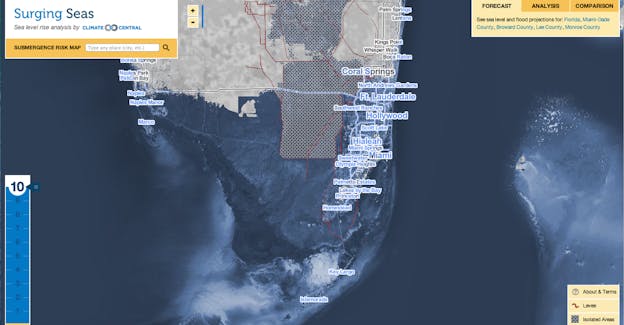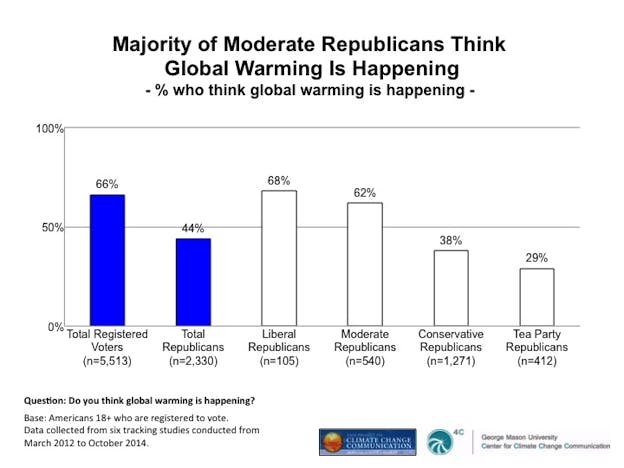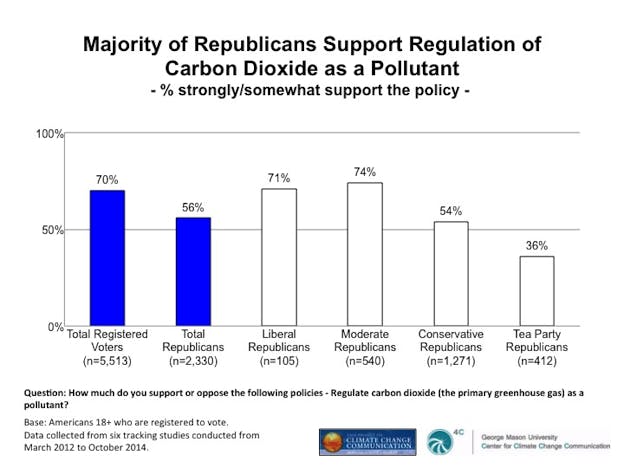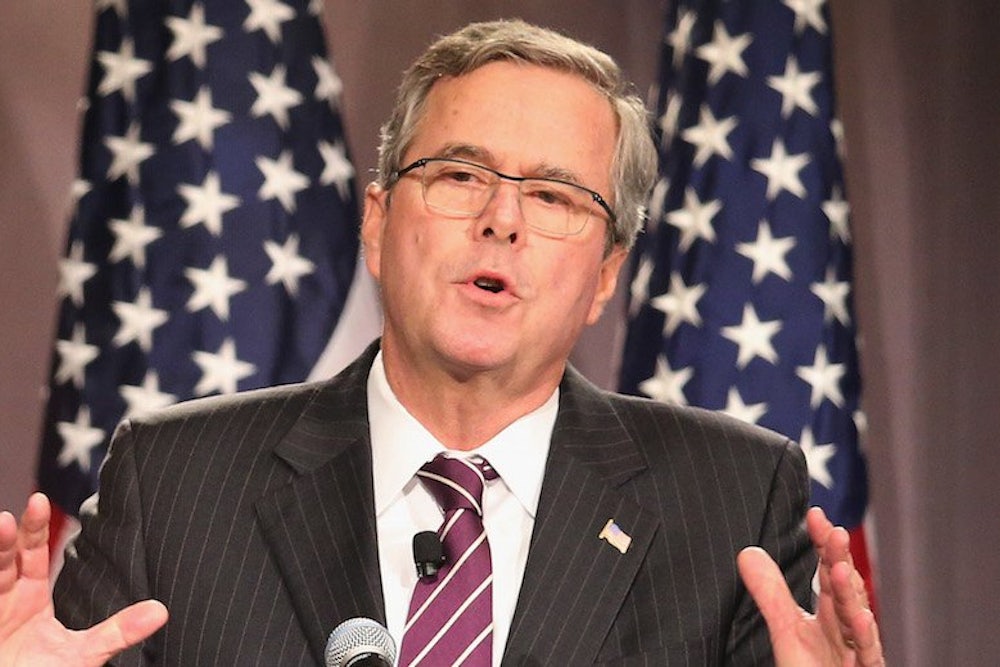Florida is flooded with climate change deniers in its top political offices.
Governor Rick Scott has claimed he’s “not a scientist” when it comes to human responsbility for global warming. Former Governor Jeb Bush, a 2016 contender, is a self-described “skeptic.” Senator Marco Rubio, who may also run for president, said last year he disagrees that any actions we take "would actually have an impact on what’s happening in our climate.” A handful of House Republicans representing Florida deny climate science, too.
If Florida were a landlocked red state, its tendency to elect deniers might make political sense. But Florida has 1,200 miles of coastline vulnerable to rising seas and increasingly extreme storms. Its southern coast will eventually disappear, given projections of 10 feet of sea level rise within the next few centuries:

How's it possible that climate deniers have a stronghold in a swing state with well-protected Everglades and money-making beaches?
It has something to do with the Tea Party’s influence. Both Scott and Rubio rode the Tea Party wave to office in 2010. Billionaires Charles and David Koch have helped to fuel conservative activism in Florida, by spending millions over the years to establish elaborate political operations in the state. As a result, Florida has become something of a testing ground for anti-government campaigning from the Kochs’ primary group, Americans for Prosperity. A New York Times story last March noted that AFP used a special election for a House seat and “turned the Florida contest into its personal electoral laboratory to fine-tune get-out-the-vote tools and messaging for future elections as it pursues its overarching goal of convincing Americans that big government is bad government.” David Jolly, AFP’s candidate of choice, won that election. Like many of his colleagues, Jolly said he doesn’t think “the impact that humans have had on our climate is so dramatic” that it warrants government action.
The third, lesser-known Koch brother is hugely influential in Florida and national politics, too. William Koch, a Florida resident and owner of the coal company Oxbow Carbon, is often the state’s top individual donor.


Conservative mobilization in the state helps propel deniers to top offices because the Tea Party is the least likely of any Republican group to accept climate change science. According to a survey from the Yale Project on Climate and Communication, more than half of Republican voters nationwide support federal regulation of carbon pollution. The 17 percent of Republican respondents who identified as Tea Partiers did not think climate change was happening and were the least likely to support government regulation.
Even if the rest of the electorate supports climate action, they don't always consider the immediate risks when they vote—making it harder for moderate candidates to topple science deniers. Rick Scott, after all, won his reelection against Democratic opposition. But voters there are beginning to see how even a minimal to moderate rise in sea level poses dangers to city aquifers and infrastructure. Flooding in its coastal cities is already a reality—by 2030, Miami will face eight times the number of floods at high tide.
